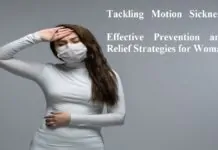Optimism refers to the tendency to anticipate or see the positive. This doesn’t mean that optimists don’t have bad days, and it doesn’t mean that an optimistic person doesn’t see the reality of the world, either.
Expecting yourself to be 100% positive all of the time doesn’t leave room for human emotion or the natural flow of life, and it’s not the goal. Instead, the majority of people strive for a healthy balance and acknowledgment of the positives.
A positive perspective influences your view of the world, but can it support your body, too? It may have more of an influence than you think.
Table of Contents
How Does Optimism Support Your Health?
A large body of research shows the correlation between positive health outcomes and optimism or positivity. Optimism is affiliated with:
Better Cardiovascular Health
Numerous studies show that optimists have a lower risk of cardiovascular disease and high blood pressure. Interestingly enough, gratitude is also correlated with a healthier heart, meaning that showing appreciation for and acknowledging the good in life might just have a positive impact on your heart health as well as your happiness and quality of life.
A Lower Risk of Insomnia
Research shows that optimists are significantly more likely to experience a higher quality of sleep and sleep longer. Optimism is also correlated with a lower likelihood of daytime sleepiness or tiredness. Sleep quality and sleeping enough make a huge difference in your physical and mental health. Without sufficient sleep, you run the risk of an elevated likelihood of high blood pressure, a greater risk of depression and anxiety, a higher risk of getting into a car accident, and more.
Higher Resilience to Stress
It’s no secret that stress can wreak havoc on your health. Stress can raise blood pressure, strain your social relationships, impact your ability to sleep, concentrate, or focus, and so much more. Research shows that those who are optimistic are more resilient to stress. This may be due to a higher probability of positive social support, or it may be due to having the coping skills to navigate stressors more effectively in another capacity. Either way, knowing how to navigate stress matters, and your mindset can be a part of that.
Improved Responses to Pain
Being optimistic doesn’t necessarily mean that you will feel less pain, but it can make you more adaptive. Research shows that optimism is linked to higher pain acceptance and a higher quality of life.
A Longer Life
In addition to all of the other health benefits of optimism, statistics indicate that those who are more optimistic live longer. This is no surprise with all of the health benefits of optimism in mind. Even so, it’s definitely a motivator to check in with yourself and your own perspective or mindset.
By no means is this an extensive list; research also shows that optimism can support your immune system, reduce scores of depression and anxiety, and even help you recover from surgery.
Why is this the case? There are a couple of potential reasons. Some suggest that those who are optimistic are more likely to implement habits that support their mental and physical well-being, and then, there are also correlations like the reference to gratitude and social support above.
Optimism can also help you achieve goals, where those with lower levels of optimism are more likely to give up. Of course, it’s not a cure-all, but it can serve as an advantage.
Is It Possible To Become More Optimistic?
What if you’re not an optimist? Is it possible to become more optimistic? Again, the answer actually is “yes.” Neuroplasticity is real, and changing your thought process over time is possible.
Various forms of mental health therapy can help you get through a hard time, develop a more supportive mindset, and so much more, depending on where you’re at and what you need.
Even the most optimistic of people need support and asking for help matters. No matter what you’re going through, you don’t have to do it alone.
Find A Therapist
Whether you’re working toward a healthier mindset or want to talk about something else that’s on your mind, a therapist or counselor can help. There are many different ways to find a therapist.
You can ask your doctor for a referral, contact your insurance company to see who they cover, search the web, or sign up for a reputable online therapy platform with licensed providers like BetterHelp.
Online therapy is often more affordable than traditional in-person therapy without insurance, and when you use a platform like BetterHelp, you can start seeing someone who is licensed to practice in your state faster.
Regardless of how you find a therapist, you deserve to get the support you need, so don’t hesitate to take the first step today.


















